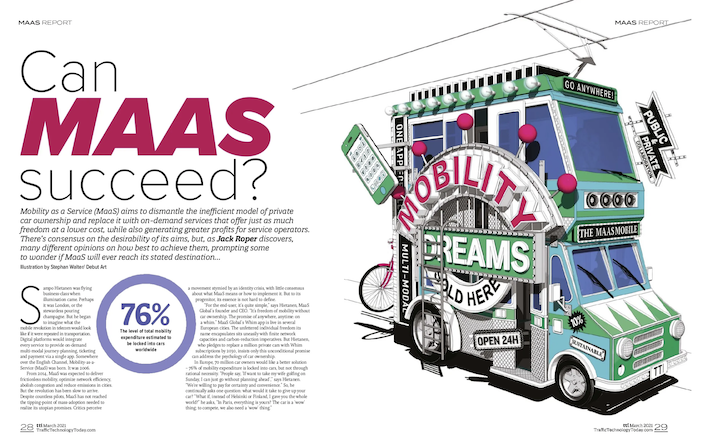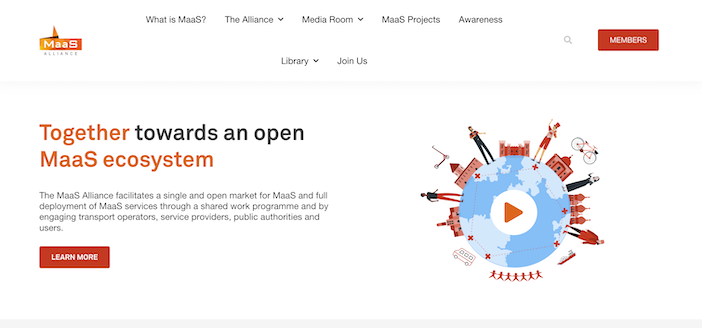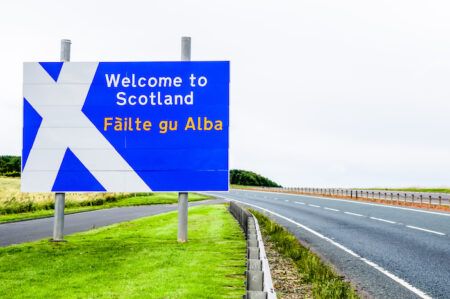MaaS Global, the pioneering mobility-as-a-service organization set up by Sampo Hietanen, has filed for bankruptcy with the Finnish Legal Register Center.
The news comes following an announcement earlier this month that it was to discontinue its flagship Whim app.
Hietanen is well known across the industry as the father of the MaaS concept, which advocates for transportation services to be interlinked and easy to access via dedicated platforms on a subscription or seamless ticketing model, which radically reduces the need for private car ownership.
MaaS Global’s Whim app successfully bundled various transportation services including public transport, taxis, city bikes, electric scooters, shared cars, and rental cars. But, despite amassing approximately 10,000 active monthly users in Helsinki, MaaS Global has struggled with financial losses for some time. In 2022 these were reported to be €9.3m against a turnover of €3.8m. At the time the company employed 38 individuals, though this was much reduced from its workforce peak of 120 at the start of 2020.

Over the years MaaS Global attracted substantial investments totaling €149 million from major players such as BP Ventures, Toyota, and Mitsubishi
Writing on LinkedIn MaaS Global’s chief investment relations officer Esra Özbay said, “Our journey at MaaS Global Ltd has come to an end, and what a journey it’s been. With the father of MaaS concept, Sampo Hietanen we set out with big dreams to change the way people move around the world. And while not everything went as planned, I am proud of what we accomplished together.
“To our amazing team, partners, and everyone who supported us – thank you from the bottom of my heart. Your passion, hard work, and belief in our vision made all the difference. We’ve faced challenges, but we’ve also shared countless good times and learned so much.
“Though MaaS Global is closing, the relationships we’ve built and the lessons we’ve learned will stay with us. Here’s to the next chapter, carrying forward the spirit of innovation and the friendships we’ve made. Let’s see where the journey takes us next.”

The demise of MaaS Global reflects broader shifts within the mobility industry, where startups grapple with economic fluctuations, consolidation, and restructuring efforts. The quest for sustainable business models often necessitates strategic overhauls, leading to layoffs and significant workforce reductions, a trend witnessed across the industry.
Despite MaaS Global’s bankruptcy it helped to create a whole new concept in transportation that has been replicated across the world and will live on. The MaaS Alliance, which has a number of commercial and public partners, was formed to promote the concept. It issued a statement which reads in full:
“MaaS Global’s announcement of closure casts a shade upon the MaaS community today, yet we view it as a catalyst for a renewed beginning, fostering stronger and more resilient solutions in the future.
“We need frontrunners and innovators that try to improve and change a complex industry such as the mobility sector. This is a laborious task that requires strong leadership and the courage of becoming an ambassador of improvements. Sampo Hietanen took this role.

“Sampo paved the way, provided us with all with the possibilities and insights of the concept of MaaS. Sampo started off the concept of MaaS by providing the possibilities that Mobility as a Service could deliver. Without these lessons, we would not be in the position where we are today. MaaS has become an integral part of any journey: from planning to booking to payment, continuous enhancements have been made. This integration is ingrained in the daily lives of individuals, with the promise of further improvement and impact.
“Sampo himself. The B2C subscription model of shared mobility that Sampo advocated for so effectively and energetically turned out not to be commercially sustainable at the present time. However, it is important to note that the B2G and B2B models hold both social and financial sustainability.
“MaaS will continue to evolve towards the realisation of an “Open Mobility Ecosystem” in which we can support and influence all mobility modes for all people at all places at any time. It is a sad day for the MaaS community, and it is a hard-earned lesson for MaaS Global and Sampo. It also serves as a clear indication that B2C readiness is yet to be achieved.
“We will keep our commitment to improving the MaaS concept, inspired by Sampo’s vision, and we will continue building and creating an Open Mobility Ecosystem that impacts positively all users.”





